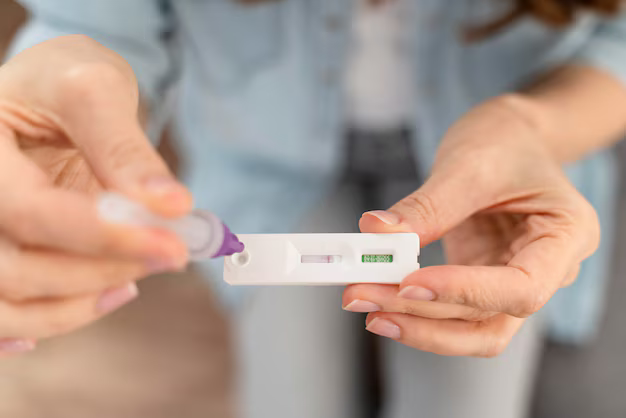The Importance of Fertility Testing
Fertility is a crucial aspect of reproductive health, and understanding it is key for those planning to start a family. At New World Fertility Centre in Delhi, we emphasize the importance of fertility testing as the first step in addressing reproductive challenges. This blog explores the significance of fertility testing, the types of tests available, and how they can guide you on your journey to parenthood.
Why Fertility Testing Matters
Fertility testing is essential for several reasons:
Early Detection of Issues: Fertility problem s can stem from various sources, including hormonal imbalances, structural issues, or genetic factors. Early testing can identify these issues before they become more complex.
Informed Decision-Making: Knowing your fertility status allows you to make informed decisions about your reproductive health and the timing of starting a family.
Personalized Treatment Plans: Fertility testing helps healthcare providers tailor treatment plans to address specific issues, increasing the chances of successful conception.
Emotional Preparation: Understanding your fertility can help manage expectations and prepare emotionally for potential challenges.
Types of Fertility Tests
At New World Fertility Centre, we offer a comprehensive range of fertility tests for both men and women:
For Women
- Ovarian Reserve Testing: This test measures the quantity and quality of a woman’s eggs. Common tests include Anti-Müllerian Hormone (AMH) levels and Antral Follicle Count (AFC).
- Ovulation Testing: Regular ovulation is crucial for fertility. Tests such as the Luteinizing Hormone (LH) test and progesterone levels can confirm if and when ovulation occurs.
- Pelvic Ultrasound: An ultrasound can detect structural issues such as fibroids, polyps, or ovarian cysts that might affect fertility.
- Hysterosalpingography (HSG): This X-ray procedure checks the fallopian tubes for blockages and the shape of the uterine cavity.
For Men
- Semen Analysis: This test evaluates the health and viability of a man’s sperm, including sperm count, motility, and morphology.
- Hormonal Testing: Hormones like testosterone and follicle-stimulating hormone (FSH) are checked to assess sperm production and overall reproductive health.
- Scrotal Ultrasound: This imaging test can detect structural abnormalities in the testes and supporting structures.
The Fertility Testing Process
Initial Consultation: At New World Fertility Centre, our experienced fertility specialists will conduct a thorough medical history review and discuss any concerns you may have.
Comprehensive Testing: Based on the initial consultation, a personalized fertility testing plan will be developed, including the necessary tests for both partners if applicable.
Results and Diagnosis: Once testing is complete, our specialists will review the results with you, providing a clear diagnosis and discussing the next steps.
Personalized Treatment Plan: Based on the findings, a customized treatment plan will be created to address any identified issues, optimizing your chances of conception.
Conclusion
Fertility testing is a vital step in understanding and addressing reproductive health challenges. At New World Fertility Centre in Delhi, we are committed to providing comprehensive and compassionate care to help you achieve your dream of parenthood. If you have concerns about your fertility or are planning to start a family, contact us today to schedule a consultation and begin your journey with confidence.
For more information or to schedule an appointment, visit New World Fertility Centre or call us at [+91-844-8786-106].
FAQ
1. What is fertility testing?
Fertility testing involves a series of evaluations and tests to determine an individual's reproductive health. For women, this can include hormone level tests, ovulation tracking, ultrasounds, and structural assessments. For men, it typically involves semen analysis, hormonal tests, and sometimes scrotal ultrasounds.
2. Why should I consider fertility testing?
Fertility testing helps identify any underlying issues that might affect your ability to conceive. Early detection of potential problems allows for timely intervention and increases the chances of successful conception.
3. Who should undergo fertility testing?
Couples who have been trying to conceive for over a year without success should consider fertility testing. Additionally, women over 35 who have been trying for six months, those with a history of irregular menstrual cycles, or those with known reproductive health issues should also consider testing.
4. What does fertility testing for women involve?
Fertility testing for women can include:
- Ovarian Reserve Testing: AMH levels and Antral Follicle Count (AFC)
- Ovulation Testing: LH tests and progesterone levels
- Pelvic Ultrasound: To check for structural issues
- Hysterosalpingography (HSG): To check for fallopian tube blockages
5. What does fertility testing for men involve?
Fertility testing for men typically includes:
- Semen Analysis: To evaluate sperm count, motility, and morphology
- Hormonal Testing: To assess reproductive hormones like testosterone and FSH
- Scrotal Ultrasound: To detect structural abnormalities
6. How long does the fertility testing process take?
The timeline for fertility testing can vary. Initial consultations and some basic tests can be completed in a few days, while more comprehensive evaluations might take a few weeks. The total duration depends on the specific tests required and the individual's health.

 Jul-22-2024
Jul-22-2024